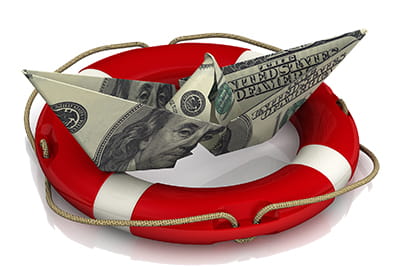Warranties in Marine Insurance: USA
 It was in the 18th Century that, Lord Mansfield attempted to separate the concept by mentioning that warranties are a part of a policy that is written; however, the representations are created out of a written agreement and can be answered either equally or substantially. Whereas warranties are to comply strictly.
It was in the 18th Century that, Lord Mansfield attempted to separate the concept by mentioning that warranties are a part of a policy that is written; however, the representations are created out of a written agreement and can be answered either equally or substantially. Whereas warranties are to comply strictly.
Warranty, in general terms, is a statutory warranty or a warranty where an assured undertakes to perform or not perform a certain thing or satisfy a particular requirement. In this process, the assured negates or affirms the existence of a particular state of facts. This explanation will be inclusive of the following:
- As far as the present or past facts – affirmative warranties
- As to conduct that is future – continuing or promissory warranties
- A condition which has been fulfilled
Marine insurance law in the United States of America provides that, a promissory warranty is an essential obligation of the assured, which he should perform to have the option to appreciate the security of the agreement. One reason for such guarantees is to make sure that the insured risk is not enhanced during the term of the insurance. This may clarify the way that the insurer will be released from the obligation under the protection contract if there should be an occurrence of minor rupture.
Warranties are both implied, an instance being the ever-present guarantee of fitness for sailing, i.e. seaworthiness, and explicitly expressed in the insurance agreement. Express warranties might be viewed as unfair or out of line to the assured, since the policy is liable to the freedom of contract and such warranties may in principle concern any commitment of the guaranteed. Truth be told, a guarantee should not be material to the hazard, which is explicitly given in the Marine Insurance Act, 1906.
This is particularly disputable considering the way that the assured should precisely agree to the warranty, and breach brings about the loss of protection cover, irrespective of the blame on the part of the assured. It is held that the guaranteed must conform to any commitment forced by a warranty, regardless of whether it appears to give preposterous impacts.
The law of warranties in connection to Marine Insurance from the start seems, by all accounts, to be incredibly valuable to insurers and, some may state, uncalled for to assure. The black letter law puts forth that infringement of a warranty qualifies the insurance provider for keeping away from the obligation under the insurance policy even if the breach of warranty had nothing doing with the deficit and paying little heed to whether the guarantee was material to the hazard.
This was frequently the outcome in a considerable lot of the more established cases. Be that as it may, the recent cases demonstrate an alternate tendency. In cutting-edge marine insurance cases, it is more probable, the insurer as opposed to the insured who will complain about the injustice, all things considered.
This is particularly disputable considering the way that the guaranteed should precisely agree to the guarantee, and break brings about the loss of protection spread, paying little mind to blame on the part of the guaranteed. It has even been held that the guaranteed must conform to any commitment forced by a guarantee, regardless of whether it appears to give preposterous impacts.
Warranty is as defined in Section 32(1) of the Federal Marine Insurance Act as pursues: ..." warranty" signifies “a promissory warranty by which the insured
- undertakes that some particular thing will or will not be done or that some condition will be fulfilled; or
- affirms or negates the existence of particular facts.”
A warranty must be actually agreed to whether it is substantial to the hazard or not. If not consented to, and the breach is not deferred by the underwriter, the underwriter is released from obligation as of the date of the breach, yet without bias to any risk brought about under the approach before the breach.
A mere intention to breach a warranty, without really doing as such, is not a break of the warranty. Likewise, strict execution of the warranty is not abstained from by an unavoidable need forestalling or preventing it.
The types of implied warrantied which are recognised in marine insurance is as under:
- the warranty of the seaworthiness of the vessel
- the legality of the marine adventure
- warranty against any deviation during the voyage
Implied Warranties:
The warranty of unbiasedness is not generally an implied guarantee as it applies just when there is an express warranty of impartiality as for insurable property. It just characterizes and delimits the express warranty of lack of bias. The implied warranty of seaworthiness and legality are, in any case, genuine implied warranties in that their presence is accepted and they will frame some portion of any agreement of marine insurance except if conflicting with an express warranty.
Seaworthiness:
 The implied warranty of seaworthiness is associated with full impact just to voyage policies. The warranty is that the ship will be stable and seaworthy when the voyage commences for the specific voyage that is insured. A seaworthy ship is one which is sensibly and reasonably fit in all regards to experience the standard dangers of the adventure insured. In a time policy, there is no warranty of seaworthiness however where, with the privity of the guaranteed, the ship is sent to the ocean in an unseaworthy manner, the guarantor is not at risk for any misfortune inferable from unseaworthiness.
The implied warranty of seaworthiness is associated with full impact just to voyage policies. The warranty is that the ship will be stable and seaworthy when the voyage commences for the specific voyage that is insured. A seaworthy ship is one which is sensibly and reasonably fit in all regards to experience the standard dangers of the adventure insured. In a time policy, there is no warranty of seaworthiness however where, with the privity of the guaranteed, the ship is sent to the ocean in an unseaworthy manner, the guarantor is not at risk for any misfortune inferable from unseaworthiness.
Consequently, in a voyage policy, the insurer needs to demonstrate just a single thing; that the ship was unseaworthy at the initiation of the voyage. In a time policy, then again, the insurer needs to establish three things; that the ship was unseaworthy, that the unseaworthiness caused the misfortune, and that the assured was conscious of the unseaworthy condition of the ship.
Despite the fact that this warranty is significant in issues including hull insurance, the issue is to a great extent irrelevant regarding cargo insurance. Cargo policies generally contain a "seaworthiness admitted" provision by which the freight guarantors concede the fitness for the sailing of the vessel wherein the merchandise is conveyed, along these lines nullifying the impact of the inferred guarantee as to cargo insurance.
- Escombia Treating Company vs Aetna Casualty and Surety Company:
In this case, the insurer made an attempt for avoiding the policy by claiming that the owner of the cargo and the vessel’s voyage charterer was obliged under the duty of disclosing despite the clause of “seaworthiness admitted” in the policy. The insured argued that this clause would not be applicable when the insured had a substantial knowledge of unseaworthiness and its ability for controlling the voyage’s conduct.
Illegality:
The guarantee of lawfulness is one which is regularly explicitly incorporated into insurance policies just as suggested. In the event there is an express warranty of legality it will have priority over the implied warranty to the degree the two are conflicting.
- New Zealand Supreme Court Harbour Inn Seafoods vs Switzerland:
In this case, the fishing vessel drifted upon a reef. The insurer declined the coverage based on the clause where it provided that the vessel was supposed to be operated in compliance with the rules and regulations as well as other laws which are applicable.
The court, in this case, put forth that the practice of “laying to” was, in fact, a breach of the regulations dealing with collision and therefore a breach of the implied warranty of legality.
- James Yachts Ltd vs Thames and Mersey Marine Insurance Co:
In this case, the main issue that came up to the courts was that the boat manufacturer had stored his boats in his yard, which is contrary to the by-laws of the Municipality. A fire outbreak destroyed the vessels and the equipment that were stored. The court went ahead and agreed with the insurer that the insured acted in breach of the implied warranty of legality and hence he was discharged from liability.
Utmost Good Faith:
A marine insurance policy approach is "uberrimae fidei" the very pinnacle of good confidence and might be stayed away from by the harmed party where the other party neglects to practice the utmost good faith required.
The Marine Insurance Act of 1906, Section 17, expresses the standard as pursues as, an agreement of marine protection is an agreement dependent on the utmost good faith, and, if the utmost good faith is not seen by either party, the agreement might be kept away from by the other party. The burden of proof is upon underwriters when they raise the safeguard of concealment or non-disclosure. The principles as for what must be revealed by the guaranteed are gone ahead in Section 18 of the Marine Insurance Act of 1906.
Express Warranties:
- Navigation/Trading Warranty
- Private Pleasure
- Towing Warranties
Latest advancements in the law in connection to warranties in policies of marine insurance demonstrate that there has been a legal revision of, if not complete revocation of the Marine Insurance Acts. It is just in exceptionally uncommon conditions that a court will discover a policy to contain a genuine warranty. These conditions will basically be constrained circumstances where the guarantee is material to the hazard, and the breach has a direction on the loss.
Methodology for an insurer to proclaim a breach ofthe warranty in the way that a breach of warranty might be deferred or banished by estoppel, underwriters ought to consider starting an activity for rescission and additionally for definitive judgment looking to dodge the policy. A fundamental component of starting such an activity incorporates the offering, as well as the return of, premium. It ought to be noticed that, under New York law, a state of inclusion, for example, "insurable interest" or "duration of the risk" may not be postponed.
Just safeguards to, or avoidances from, coverage might be postponed. In spite of the fact that activities by the underwriter might be regarded to make waiver or estoppel issues, express arrangements of the "sue and labour proviso" may accommodate certain activities to continue on a "without prejudice" premise. Obviously, any examinations, activities or guidelines by the backup plan concerning the load and any expressed positions in regards to the declination of coverage ought to be joined by an express "without prejudice" explanation saving rights under the policy or something else.
Conclusion:
 Marine freight insurance has advanced from restrictive inclusion terms dependent on "named dangers", to wide inclusion terms dependent on "all hazard." The "length of hazard" has constantly extended from "send stacking to ship release," at that point from "Warehouse to Warehouse" and now, well past.
Marine freight insurance has advanced from restrictive inclusion terms dependent on "named dangers", to wide inclusion terms dependent on "all hazard." The "length of hazard" has constantly extended from "send stacking to ship release," at that point from "Warehouse to Warehouse" and now, well past.
Custom clauses are seamlessly drafted by dealers to grow inclusion. From 45 the brokers’ point of view, guarantees are by and large disfavored. From the underwriters’ viewpoint, in any case, warranties remain a viable instrument for controlling risk exposure.
The role of marine insurance has been to a great extent perceived in both residential just as global exchange and business. Generally, there has been an unfaltering increment in the sorts of instruments using various advancements. The amazing pace at which the route innovation has been changing in the ongoing years, there is a requirement for exhaustive modification of marine protection law.
Late advancements in the laws identifying with warranties in marine insurance show that there has been a legal alteration of various Marine Insurance Acts. On these lines, it is normal that the IRDA alongside the concerned service ought to incorporate the progressions concerning the evolving innovations.
 English
English
 عربي
عربي Русский
Русский 官话
官话 português
português
 Türk
Türk 












